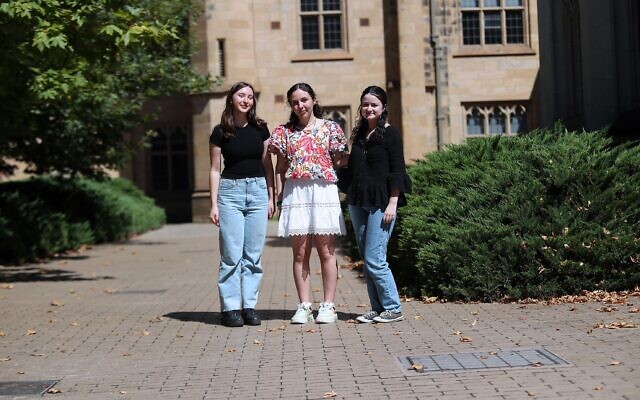Top marks for IHRA adoption
The University of Melbourne has become the first Australian university to adopt the IHRA Working Definition of Antisemitism.
JEWISH organisations and the wider community have applauded a decision by the University of Melbourne to adopt the International Holocaust Remembrance Alliance (IHRA) Working Definition of Antisemitism, becoming the first Australian university to do so.
The adoption, along with all the definition’s examples, forms part of a broader anti-racism commitment made by the university on Tuesday.
The university’s announcement – days before International Holocaust Remembrance Day on January 27 – came after turmoil on campus last year when a motion from its students’ union called on the university to boycott and divest from Israel.
And in a year of anti-Israel activity on campuses, the National Tertiary Education Union last year voted to support a motion in solidarity with Palestine and oppose the adoption of the IHRA definition at Australian universities.
This week’s announcement was welcomed by Executive Council of Australian Jewry co-CEO Peter Wertheim, commending the University of Melbourne and calling on other universities, along with educators, media, law enforcement and faith leaders to “show leadership and take decisive action against antisemitism by personal example, including the adoption of the IHRA Working Definition, and through education”.
The federal Parliamentary Friends of IHRA, which after its founding last year, wrote to all Australian university leaders in December, urging them to adopt the IHRA definition, lauded the University of Melbourne’s move, and the work of the Australasian Union of Jewish Students (AUJS) in presenting the case for adoption.
“The IHRA definition is a valuable tool to help institutions combat antisemitic abuse and educate about the horrors of the past. We look forward to seeing other universities in Australia follow suit and look forward to continuing our important discussions with them on this important initiative,” co-chairs Josh Burns, Julian Leeser and Allegra Spender stated.
AUJS president Alissa Foster told The AJN, “This is incredibly important, not only to Jewish students at the University of Melbourne, but across Australia and New Zealand. For the past two years, we have seen an increase in antisemitism on campus, and finally Jewish students’ concerns have been recognised.”
Melbourne University Jewish Students Society president Holly Feldman said, “As Jewish students at the University of Melbourne, we applaud this decision by our university’s leadership. We are grateful that the leadership have actively listened to the concerns of Jewish students.”
Calling it “a very welcome and much needed step towards combating rising antisemitism at university campuses across Australia”, Australia/Israel & Jewish Affairs Council executive director Colin Rubenstein said, “We urge all other universities to emulate the University of Melbourne to help them fight this insidious hatred.”
Zionist Federation of Australia president Jeremy Leibler said, “This move is a strong step forward in the fight against antisemitism on campus and in society as a whole. This is an example of real leadership … By adopting the Working Definition, Melbourne University is taking a meaningful step to demonstrate to Jewish students that antisemitism on campus will not be tolerated.”
Welcoming the development, Zionism Victoria president Yossi Goldfarb noted, “In recent years, Jewish students across Australia have become increasingly uncomfortable on campus with student unions adopting virulently anti-
Israel resolutions that cross the line between what could be considered legitimate criticism of the country and blatant antisemitism.”
Deputy Liberal leader and Caulfield MP David Southwick, who sent a letter to Premier Daniel Andrews in November, urging him to take action to see the IHRA definition adopted by all Victorian universities, described the adoption as “a powerful message against bigotry and intolerance”.
But he added, “Although this is an important step, it is only the beginning. I look forward to more universities taking a stand and adopting the IHRA definition.”


comments